FOCUSED RESOURCES SERVICES
Search
Focused Resources is a WBE, SBE, DBE

Loss Prevention
Focused Resources develops protocols and enterprise-wide programs aimed at preventing loss of life, health, and property from incidents and accidents.
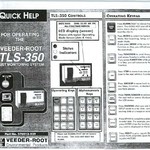
Functional Illiteracy Component for Incident Reduction/Safety Programs - We began as a small team of conceptual designers, within an oil company Headquarters (HQs) group, creating Incident Reduction program elements. Early on in our research (audits and inspections of operations), originally due to the incidents/accidents, it became apparent that a large percentage (estimated 60%) of manual tradesmen/operators were "functionally illiterate" with respect to reading and writing English. Simply put they could not read signs, maps, plans, equipment manuals, training materials, etc. within the operations and corporate safety called it "the dirty little secret". Once discovered this small group of HQs staff formed a cross-functional team to have process-savvy behavioral scientists meet with refinery/terminal/pipeline personnel and safety experts to create a beta-test version of a safety program not wholly reliant on written materials. The results of these specialized reviews of the operations led to the industry standard known as Behavior Based Safety/Loss Prevention System.
Due to wide-range success, we continue to use this process thinking to break down complicated issues into manageable, relatable 'pieces'. Our regulatory compliance expertise, paired with this process thinking, is best used for root-cause evaluations, creation of practical health, environmental and safety programs, development & implementation of training programs, and tenant audits. We also find, due to our broad operational experience, we are excellent for litigation support as Consulting Experts, expert witnesses, and Jury Exhibits creators (capturing complicated processes in images).
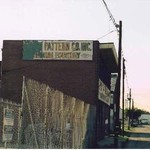
Site Screening for school sitings - Kroll Associates Inc for Confidential client(s) - Contracted as Lead Environmental Investigators we conducted research and evaluation involving the sites in a dispute between a major Unified School District and a major international insurance company. Ten sites chosen for initial litigation were used to develop a Review (Cost Allocation) Protocol by which hundreds of properties were evaluated.
Crucial findings on this ten-site sampling: One investigation, involving 30+ parcels, led to the cancellation of the siting of a high school on what is now a Superfund site (named by USEPA after our investigation). Another investigation identified arsenic contamination in the shallow soil at an elementary school. This soil, within the top 5 feet, had never been sampled by the school district's consultants, USEPA or CA Department of Toxic Substance Control. This finding was substantial since arsenic contamination had been found, due to sampling events, at depth on this site. Our investigation also identified the potential source of arsenic being from the filling of the former Los Angeles River natural channel by city, county and federal agencies, apparently while the concrete-lined channel was being dug.
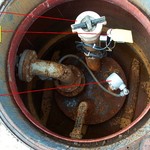
Reliability Engineering/Root Cause Analysis/Leak Prevention - Retail Gasoline Outlets - Compliance Program Manager - Ms. Coughlin led the national team for a major oil company's nine regions involving thousands of service stations/retail gasoline outlets. This hand-selected Dream Team developed nationwide procedures and programs (now used across the oil industry as standards of operation). The comprehensive program includes equipment (design, installation, operation, monitoring, maintenance, removal), media (product, water, waste, air) management, monitoring & reporting, leak detection, training, owner/operation agreements, permits, regulations and legislation. Due to Ms. Coughlin's expertise she has also been a member of numerous local, state and federal task forces and industry committees who developed the Certified Operator Training protocols, leak detection equipment design standards, enhanced/site-specific HAZCOM elements, and creative California Underground Storage Tank (UST) fund cost recovery criteria (when the CA UST Fund threatened to go bankrupt).
Ms. Coughlin, and her team, are renown for challenging the historic, narrowly-focused approaches to Leak/Spill prevention and Retail Outlet operations. They introduced the 'Human Factor' (90%) versus 'Equipment Factor' (10%) approach to the root-cause analyses of leaks/spills and applied Reliability Engineering to the decision processes involving equipment choices at service stations. These practical Leak Prevention programs have never been more important, now that most service stations, nation-wide, are operated by independent operators/marketers.
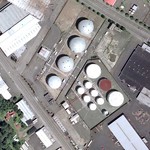
RCRA Compliance - Major Oil and Pipeline Companies - Terminal Operations - Project Manager - these projects involve Resource Conservation and Recovery Act (RCRA) reviews for fuel & chemical distribution, marine and pipeline terminals (including merges and alliances within multiple oil companies' operations) across the United States. Comprehensive multi-media (waste, water, air, refined product, recovered oil, slop oil) reviews were creatively combined resulting in the creation of operational efficiencies, and consequently the illumination of inefficiencies, in compliance programs. In addition, due to this cross-media approach, non-compliances/violations were avoided, for non-permitted discharges/treatment waste streams previously handled by different departments, and in some cases believed to be "exempt or excluded" from certain regulations.

Revised Process Safety Management Program (PSM) - Bakersfield Refinery - Project Manager/Facilitator - Ms. Coughlin, under the direction of the HES and Plant Management, led the team of safety and operational specialists to use methods to combine several units'/departments' equipment specifications, operational manuals and safety procedures into one plant-wide Process Safety Management Manual/Program. This revised PSM cascaded into other programs including Contractor Safety audits, Contractor Training, 'Turn Around' safety, and design-specification review.
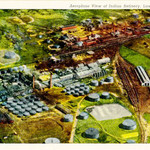
Former Indian Refining refinery/natural gas/pipeline facilities - Lawrenceville, IL - Confidential Clients: Focused Resources worked in a data management and Lead Researcher position for multiple legal, technical and real estate teams over 16 years on this site involving 100+ years of data (hard-copy and electronic). In 1998, we were first asked to locate, compile and manage information necessary for the Remedial Investigation/ Feasibility Study (RI/FS) workplan phase of this Superfund site. This facility complex had gone through five owner/operator changes, only one of which included our client(s). In addition to the environmental assessment, remediation and restoration activities, there were numerous legal actions involving the State of Illinois, the US government over World War II claims, four successor owners/operators (several claiming bankruptcy status), property owners (including right-of-way agreements), and a Class Action lawsuit involving local residents.
Focused Resources' team captured 125, 000 hand-selected documents (1.32M pages) from ten different sources (archives for predecessor & successor owners/operators, consultants, law firms and agencies) located nationally. We designed a process flow by which the responsive, hard-copy data, representing 75 years of operations, were scanned or digitized into an electronic format, bibliographically indexed and uploaded into one database in FYI Concordance. We also located 14 other databases and had that data migrated into our comprehensive database. This resulted in 71 gigbytes (GBs) of project data. Throughout the litigations (involving twelve different law firms), Focused Resources continued to serve as our client's Lead Researcher, for the technical and real estate teams, producing the information necessary to appropriately respond to all aspects of their efforts from assessment through restoration.
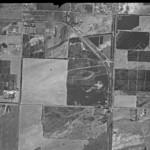

"Sustainable" Practices - Since the 1980s our technical team has designed and managed remediation and restoration projects using what is now called "Sustainable" land-development measures and/or Sustainable Remediation. Historic practices, such as enhanced leak/release prevention (operational changes), product recovery, waste minimization and elimination, reuse/reclamation/recycling of extracted groundwater, soil, and building materials (ie concrete), elimination of fugitive air emissions, soil & groundwater treatment in situ and use/training of local/regional talent, have been employed whenever feasible. Due to our 30+ years of experience, as trailblazers in this arena, our team can also assist clients in quantifying these measures on pertinent filings such as Annual Reports.
We respect that our clients have been conducting their businesses in socially-responsible ways. Capturing the specific measures in this 'sustainable' nomenclature can simply be an accounting and documentation issue.